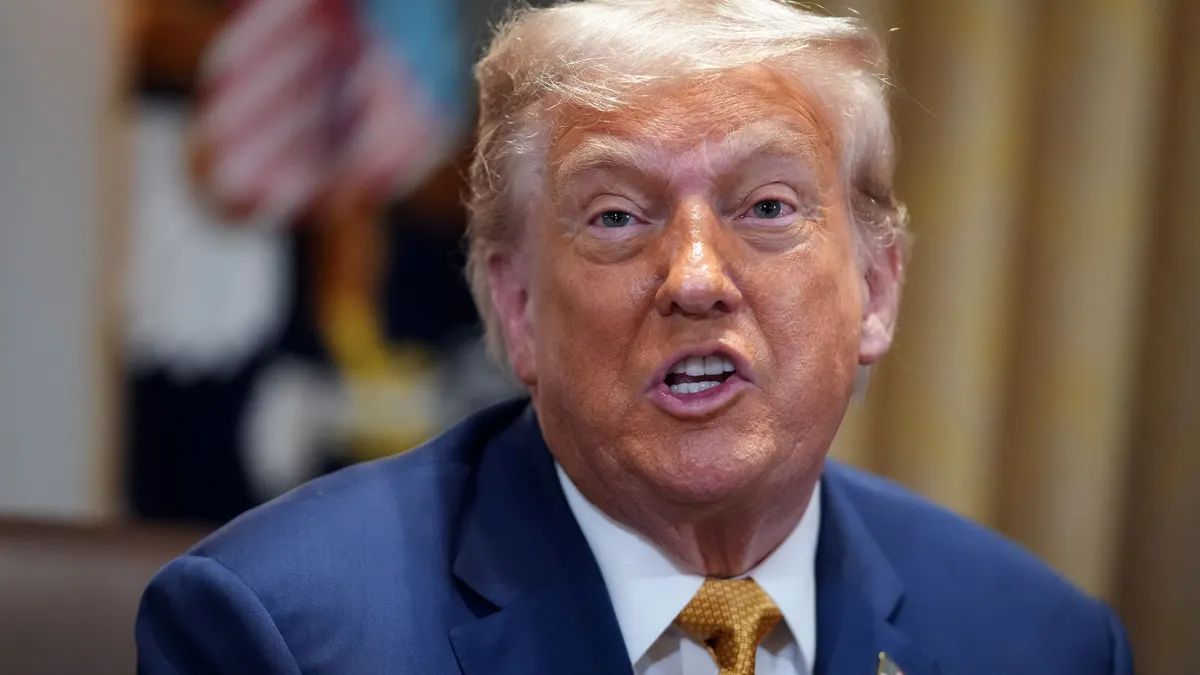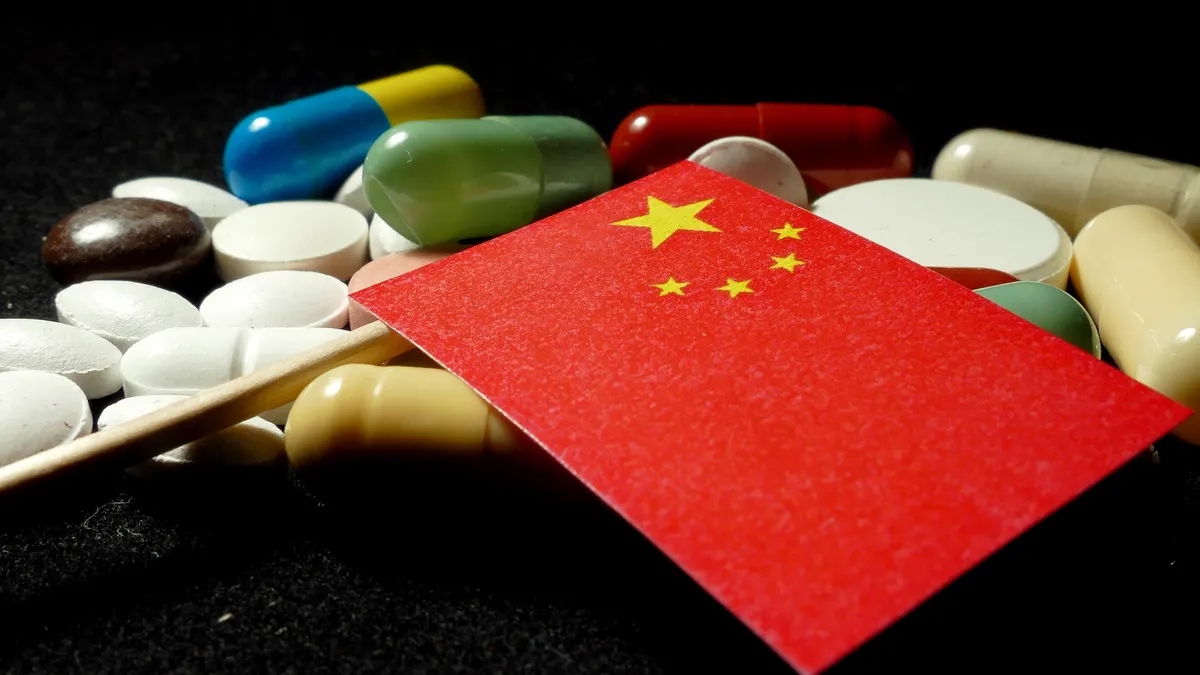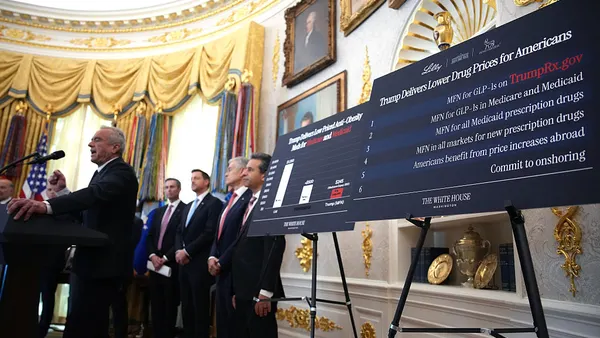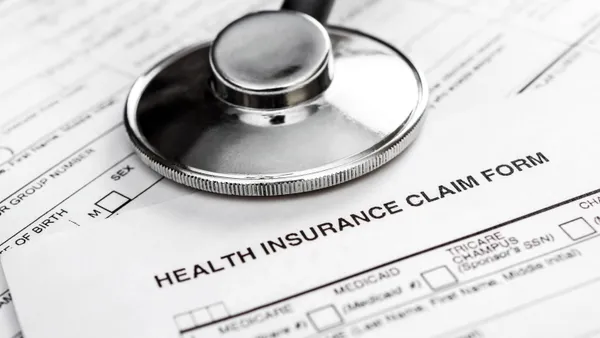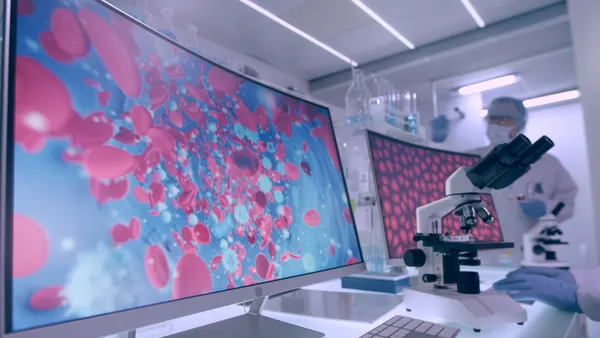President Donald Trump is planning to introduce tariffs of 50% on copper imports and levies “at a very, very high rate, like 200%” on pharmaceutical products, he said at a cabinet meeting Tuesday.
Trump indicated official announcements of the tariffs would come “very soon” but did not elaborate on an exact timeline. He did say, however, that the U.S. would give pharmaceutical importers at least a year to shift their strategies before the implementation of the levies.
Earlier this year, the Trump administration initiated several Section 232 investigations into imports such as copper, pharmaceuticals, critical minerals and semiconductors. These types of reviews have previously served as precursors for other sector-specific duties, such as the now 50% levies Trump has placed on aluminum and steel this year.
Other sector-specific duties Trump has introduced during his second term in office include a 25% tariff on foreign-made cars and auto parts.
The administration’s probe into the copper sector, launched in February, directed the Secretary of Commerce to deliver an assessment of the impact of importing copper on domestic production and demand.
The Commerce Department initiated a similar investigation into the pharmaceutical supply chain in April. Per a federal filing, the Commerce Department is reviewing imports of both generic and branded pharmaceutical products, as well as their active ingredients, as part of its probe.
In a note to clients, Leerink Partners David Risinger wrote how the planned grace period is a “positive” for the sector, which has for years built up production capacity in countries like Ireland, Switzerland and the Netherlands. Many generic medicines and drug ingredients, meanwhile, are sourced from India and China.
Trump delivered his remarks promising new sector-specific tariffs a day after he pushed back the return of his administration’s country-specific reciprocal duties to Aug. 1. The president also released details about the rates imports from countries like Japan and South Korea will face once the reciprocal tariff pause is lifted.
Ned Pagliarulo, lead editor at BioPharma Dive, contributed writing.



